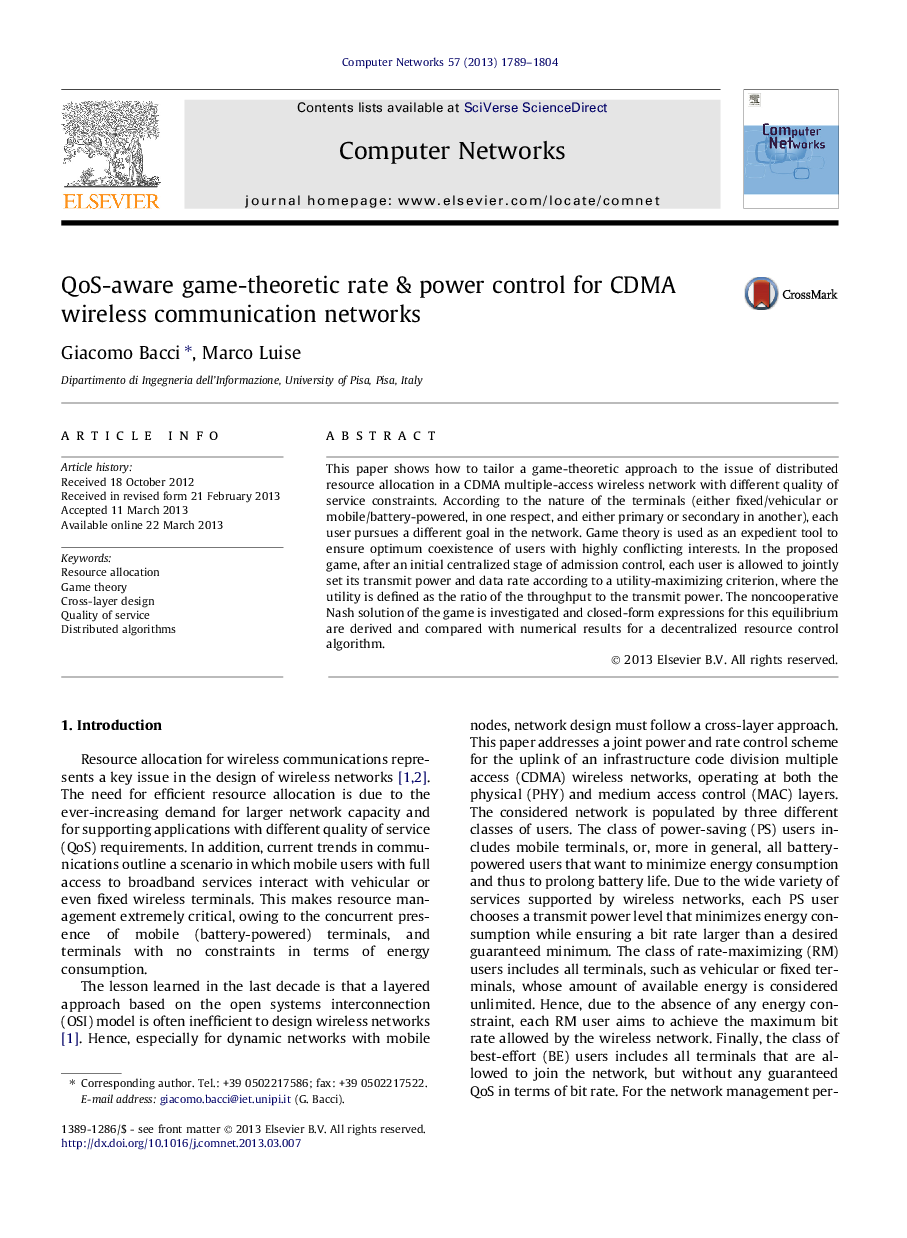| Article ID | Journal | Published Year | Pages | File Type |
|---|---|---|---|---|
| 452941 | Computer Networks | 2013 | 16 Pages |
This paper shows how to tailor a game-theoretic approach to the issue of distributed resource allocation in a CDMA multiple-access wireless network with different quality of service constraints. According to the nature of the terminals (either fixed/vehicular or mobile/battery-powered, in one respect, and either primary or secondary in another), each user pursues a different goal in the network. Game theory is used as an expedient tool to ensure optimum coexistence of users with highly conflicting interests. In the proposed game, after an initial centralized stage of admission control, each user is allowed to jointly set its transmit power and data rate according to a utility-maximizing criterion, where the utility is defined as the ratio of the throughput to the transmit power. The noncooperative Nash solution of the game is investigated and closed-form expressions for this equilibrium are derived and compared with numerical results for a decentralized resource control algorithm.
